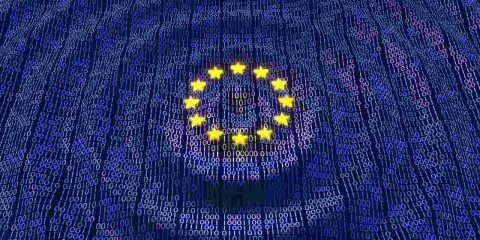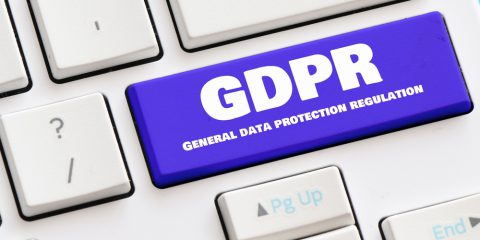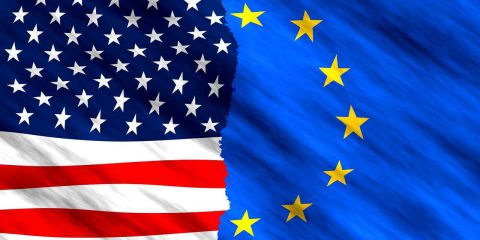Italia

Pubblichiamo l’intervento di Mustafa Aykut (Group Representative, Turk Telekom), all’evento ‘Beyond Dubai: A New Global Agenda for the Internet’, organizzato da Alleanza per Internet e tenutosi a Roma nella Sala delle Conferenze internazionali del Ministero Affari Esteri.
Turk Telekom is an integral part of the international telecom ecosystem. In our increasingly interconnected and globalized world our concerns with some of the largest telcos in Europe, the Middle East, South Asia and Northern Africa are much the same. This text brings the most pressing communication issues to your attention. I hope to generate discussion which will help new and innovative ideas flourish and move our industry forward.
In the beginning of March, I had the opportunity to speak at the SAMENA Council’s highly anticipated annual Beyond Connectivity conference in Istanbul with esteemed colleagues from Jordan to Hong Kong and at the round table debate titled ‘Beyond Dubai: A New Global Agenda for the Internet’ in Rome. On my agenda was one of today’s hottest topics: Internet Governance.
To a lesser or greater extent, how the Internet is managed, who gets to be in charge and why we need control at all is a concern for the global community as we have all come to depend on the Internet and its services. Hence, Internet Governance is moving increasingly into the public eye. The more modern society depends on the Internet, the more relevant Internet Governance will be.
In fact, the Internet has become such a source of power globally that states perceive it as in their ‘existential’ interest to shape the form of its development and governance. The various global actors have different goals and strategies to achieve them.
However, countries are focusing on generating new revenue from Internet services rather than on policy generation for Internet Governance, which I believe is the main issue we have to deal with.
As some of you may know, this was evident at the World Conference on International Telecommunications (WCIT) last December. This high level conference not only received unprecedented attention from the media and the public, but member states themselves sent hundreds of representatives to discuss and contribute to global communications issues.
The WCIT is only the latest in a series of on-going international talks on Internet Governance. The World Telecommunication Policy Forum (WTPF) will take place in Geneva this May and preparations for the 2015 World Summit on the Information Society (WSIS) have already begun. At these forums and elsewhere, stakeholders will tackle governance issues including affordable access, cyber-security threats, and spam. Let’s keep in mind that there is also the institutional challenge of how to scale existing organizations to represent Internet users around the world.
What really is Internet Governance?
Internet and Governance: the two terms were first used by the researchers in the mid-nineties at Harvard. The WSIS roughly defines Internet Governance as the development and application of shared principles that shape the Internet.
This is a rather broad definition which has not yet satisfied the global ICT community. The Internet Governance regime is complex; it involves many issues, actors, mechanisms, procedures, and instruments. Its multidisciplinary nature, encompasses a variety of aspects, including socioeconomics, development, law, and politics.
Let me clarify that Internet Governance does not implicate a sole governmental exercise. It is a procedure for administration involving principles, policies, rules and processes that are shaped by social norms, markets, architecture, and technology.
In fact, Internet Governance aims to look at a number of disparate issues including multi-stakeholderism, new gTLDs, privacy concerns (e.g. tracking, surveillance etc.), cyber security, human rights, freedom of expression, censorship, cybercerime, cyberwars, and new generation access technologies.
Why do we need Internet Governance?
The issue here is rather simple. As part of the global society we are either directly or indirectly affected by the decisions to control and manage the Internet. With increased globalization and commercialization, there is a greater need for change, for accountability and for a more formalized management structure to deal not only with the dissatisfaction from a lack of competition but also in resolving conflicts regarding trademark/domain names, etc.
Establishing more formalized structure in a shared economy
To date, the Internet has been a shared economy, thriving on the multi-stakeholder governance model which has brought business, civil society, governments and research institutions together to make decisions and implement solutions. This model has to be maintained.
The more formalized multi-stakeholder model must account for several issues including intellectual property, security and privacy, jurisdiction and dispute resolution, infrastructure, public vs. private institutions, taxation and finance, commercial relations and agreements between private parties.
Who is in charge?
The Internet should remain an autonomous entity, where no one person, company, organization or government has the power to run it. As a globally distributed network comprising many voluntarily interconnected networks, it operates without a central governing body. Internet Governance should be transparent, democratic, multi-stakeholder and multilateral.
When we look into the “who” question, we need to consider the roles of the public and private sectors, who makes the decisions and who is in charge of the management processes?
In other words, who has the power and control? Is this unilateral or multilateral? With multi-stakeholderism, we are talking about a division of labour. Who is in charge of Internet names and numbers, who is responsible for the management of the DNS roots? Who oversees the ENUM roots? All of these questions should be carefully answered if we are to define a more formalized multi-stakeholder governance structure for the Internet.
But where…
The ambiguity in this area arises when we seek to establish the settings in which Internet Governance policies should be discussed, adopted, and implemented. The global and interconnected nature of the Internet plays a major role in this discussion. Building on the theories of networked governance and cooperative production, some argue that transnational institutions and forms of Internet Governance are more appropriate than sovereign modes. When addressing the “where” of Internet Governance, we can consider some of these questions: Do states have a say in Internet Governance? What is the role of country: a consumer or an industry player? How can states make the standards process effective? What is the effect of digital development on individual societies? Who generates the funds? How will new Internet applications be developed and deployed inside and across borders? Are their larger issues with respect to sovereignty and security? What are the larger sovereignty issues?
Regardless of how we might answer these questions, I think it is safe to say that any institution or organisation addressing the Internet must account for the legitimacy, transparency, accountability, and inclusiveness of its governance.
The ultimate goal
The global ICT community’s ultimate objective when establishing Internet Governance policies should be to preserve, protect and improve the Internet as a robust structure, an ideological and more importantly an economic system and to make it accessible to all as a way of life.
New policies therefore, should not only support the development of new business models but sustain a network that enables variation, evolution and innovation.
#beyondWCIT: lo Speciale di Key4biz











